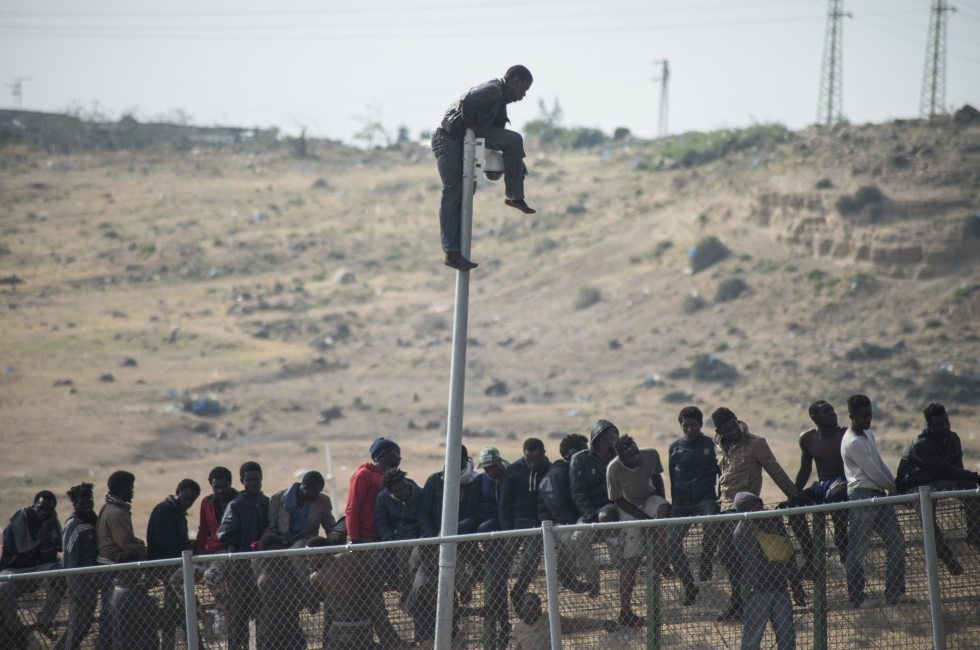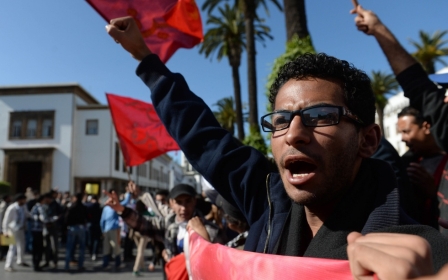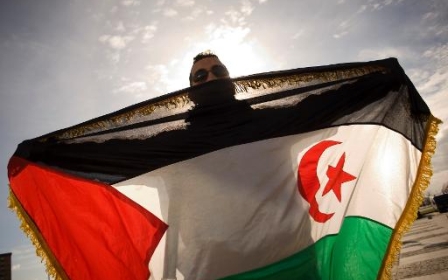Morocco building anti-migrant wall along Melilla border, say activists

Morocco has started building a blade-topped wall near the Spanish territory of Melilla in order to deter potential migrants from crossing into Europe, according to reports by local activists on Saturday.
"Construction work for a barrier began about twenty days ago," said Chekib el-Khayari, head of the Rif Association for Human Rights, an activist organisation, confirming press reports. "According to elements gathered by our association, these barriers will be five metres high and will be topped with blades."
Adil Akid, an activist from the Moroccan Human Rights Association, said ditch-digging work had begun on the Moroccan side of the border with the intention of building a wall.
Contacted by AFP, Moroccan authorities declined to comment.
Over 1000 people attempted to climb over a Spanish built fence into the territory in March before being pushed back by security forces. An early morning rush of 500 people earlier this month is thought to have allowed 140 people to cross over.
New MEE newsletter: Jerusalem Dispatch
Sign up to get the latest insights and analysis on Israel-Palestine, alongside Turkey Unpacked and other MEE newsletters
Human rights groups have criticised Morocco's treatment of migrants within its borders, with a Human Rights Watch report claiming police "beat these migrants, deprived them of their few possessions, burned their shelters, and expelled them from the country without due process."
Mediterranean "graveyard"
Melilla is one of two land borders between Europe and Africa and is, as such, a hotspot for migrants seeking entry into Europe, without having to face an often fatal sea voyage.
The deaths at sea of hundreds of migrants, mainly from sub-Saharan Africa, has led some commentators to warn that the Mediterranean sea is turning into a "graveyard".
More than 100 refugees drowned off the coast of the Italian island of Lampedusa last October, sparking an international outcry at the conditions facing Africans attempting to travel to Europe.
European leaders have called for greater resources and money from the EU to help manage its borders.
Judith Sunderland, acting deputy director for Western Europe at Human Rights Watch, has condemned the inaction of European countries to tackle the deaths of African migrants. "EU leaders should move beyond expressions of regret and commit to concrete actions to help prevent more deaths of migrants at sea,” she said in a statement. "New proposals for increased monitoring of the Mediterranean need to focus on saving lives, not barring entry to the EU."
Middle East Eye delivers independent and unrivalled coverage and analysis of the Middle East, North Africa and beyond. To learn more about republishing this content and the associated fees, please fill out this form. More about MEE can be found here.




